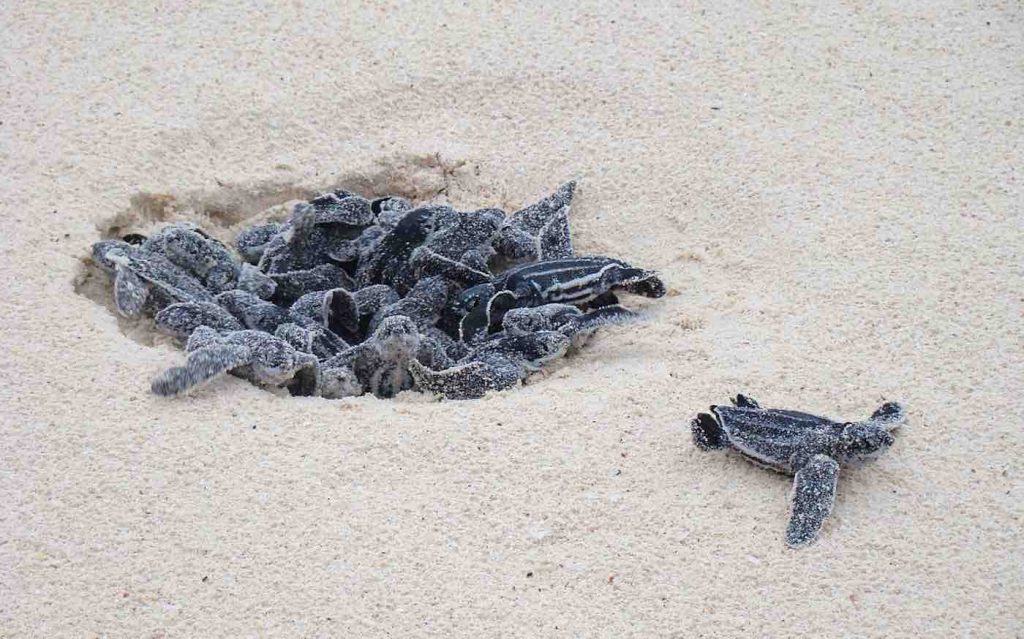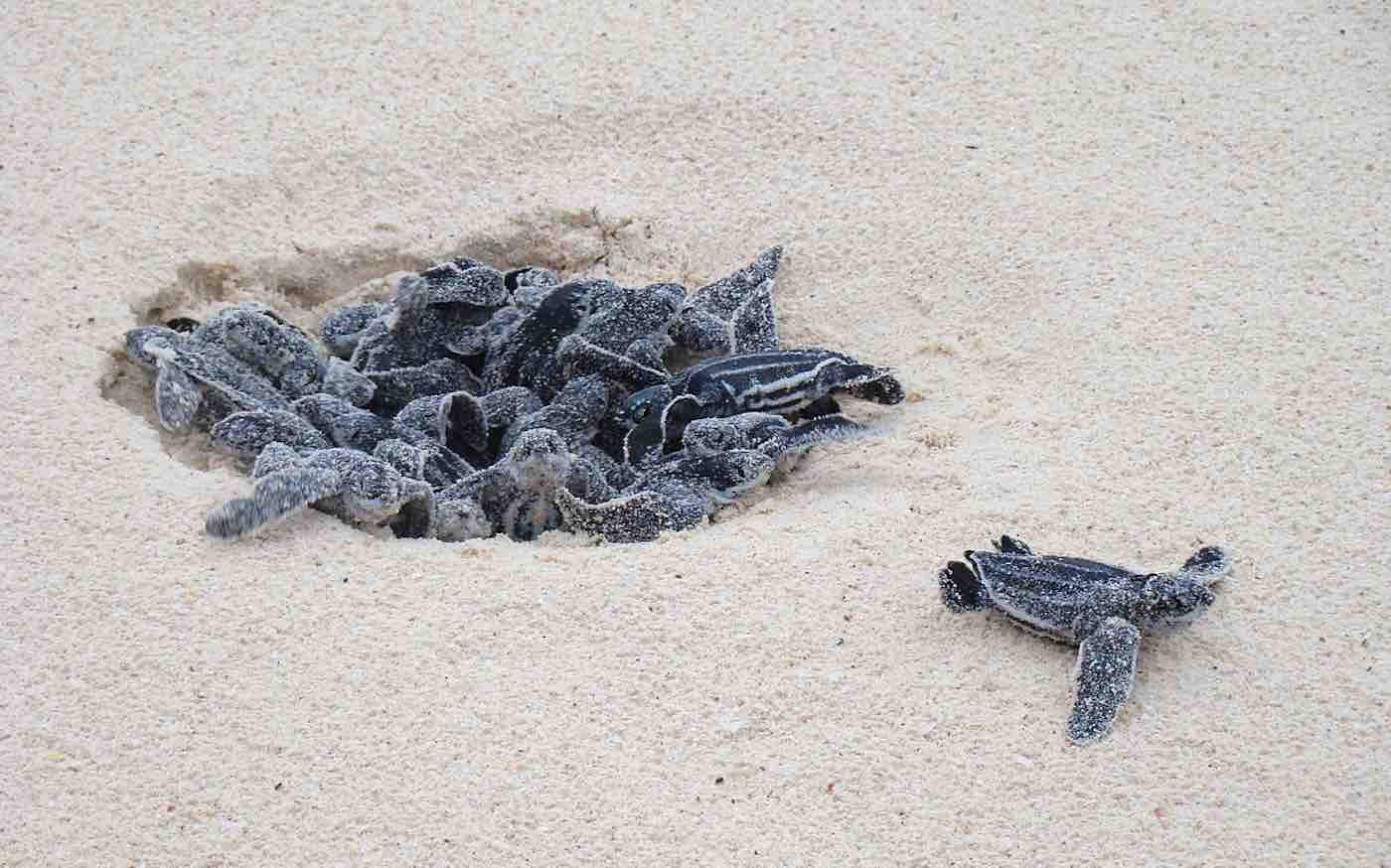From fish returning to the Venice canals to deer in the streets of London, many of the shelter-in-place orders and lockdowns resulting from the coronavirus spread have allowed for nature to come back in some of the least-likely places.
Thailand is the latest nation to make headlines from the phenomenon, after the Thai government placed a ban on international flights and a strong encouragement to stay at home.
Though the coronavirus has shut down Thailand’s tourism economy, a season of peace and salvation for rare leatherback sea turtles has emerged. Endangered in this area of Southeast Asia, they are nesting here for the first time in five years.
The largest of all living turtles, the leatherbacks have made 11 nests on Thai beaches this spring—more than at any time during the last two decades.
WATCH: ‘Fantastic Grandmas’ Spend Retirement Photographing Venomous Sea Snakes for Science
“This is a very good sign for us because turtles have a high risk of getting killed by fishing gear and humans disturbing the beach,” the director of the Phuket Marine Biological Centre told The Guardian.
Similar Good News in the Sunshine State
In Florida, too, the number of leatherback sea turtle nests have skyrocketed compared to last year.

Juno Beach is the most densely nested sea turtle beach in the entire world, with an estimated 21,000 nests last year from various species.
Only 2 weeks into the summer nesting season of 2020, staff at the Loggerhead Marine Life Center have found and marked 76 nesting sites for the leatherback—a “significant increase” over last year’s count along the 9 and ½ mile beach.
With no dogs or people walking over nests and exposing eggs, there’s a good chance the eggs will survive the 60 days until hatch day.
CHECK OUT: After 13 Years of Social Distancing, Giant Pandas Finally Mate During Peaceful COVID-19 Zoo Closures
“Our leatherbacks are coming in strong this year. We’re excited to see our turtles thrive in this environment,” Sarah Hirsch told West Palm Beach’s WPEC-TV news.
“Our world has changed, but these turtles have been doing this for millions of years and it’s just reassuring and gives us hope that the world is still going on.”
By the end of the nesting season, if the increased numbers continue, it could provide a valuable boost for the vulnerable species.
Multiply The Good News By Sharing It With Your Friends On Social Media…




















